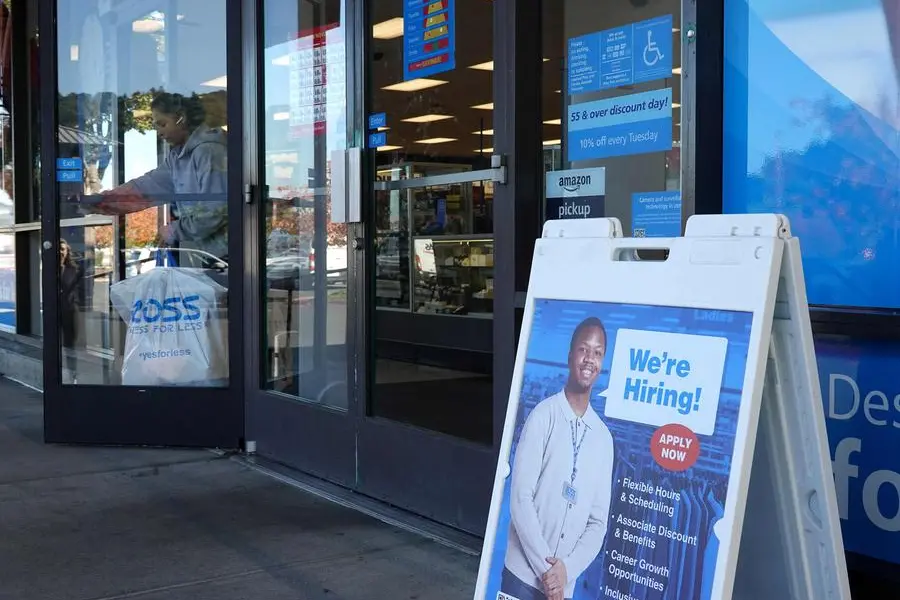PHOTO
The US economy added more jobs than expected last month, government data showed Friday, bouncing back from a dramatic slowdown triggered by hurricanes and labor strikes.
The world's biggest economy gained 227,000 jobs in November, up from a revised 36,000 in October, said the Department of Labor.
The overall jobless rate ticked up to 4.2 percent from 4.1 percent.
The rise in hiring was likely due to a return of Boeing workers and others who had gone on strike, and came as the cumulative impact of hurricanes Helene and Milton faded.
There was probably also a temporary increase in retail employment during the holiday season, EY senior economist Lydia Boussour said in a recent note.
Last month "employment trended up in health care, leisure and hospitality, government, and social assistance," said the Labor Department.
But the retail trade sector lost jobs, the department added in a report.
The hiring figure was above a market consensus expectation of 200,000 according to Briefing.com.
Average hourly earnings rose more than expected too from a month prior, by 0.4 percent to $35.61.
From the same period a year ago, wages were up 4.0 percent.
While Boussour said she expects job growth to settle "below trend" as the labor market cools gradually, she added that "a labor market downturn isn't on the near-term horizon" with layoffs remaining relatively low.
Companies have also been managing their workforces using other means like holding back wages and resizing instead of letting people go.
The report is one of the final major economic indicators that the US central bank is taking into consideration as officials enter a policy meeting in the coming weeks.
Many expect the Federal Reserve to cut interest rates for a third consecutive meeting.
But Fed Chair Jerome Powell said this week that policymakers could "afford to be a little more cautious," noting that the US economy remains strong.
One factor is US inflation data, which came in a little bit hotter than expected recently, ZipRecruiter chief economist Julia Pollak told AFP.
This points to the difficulty of bringing down consumer price increases sustainably, with the Fed previously holding interest rates high to cool demand and fight price surges.
But Fed policymakers will be weighing this against the risks of a weakening labor market if they pause their rate cuts, given a "steady slowdown in job growth" and that hiring gains have been increasingly concentrated in just a few key sectors recently, Pollak added.





















